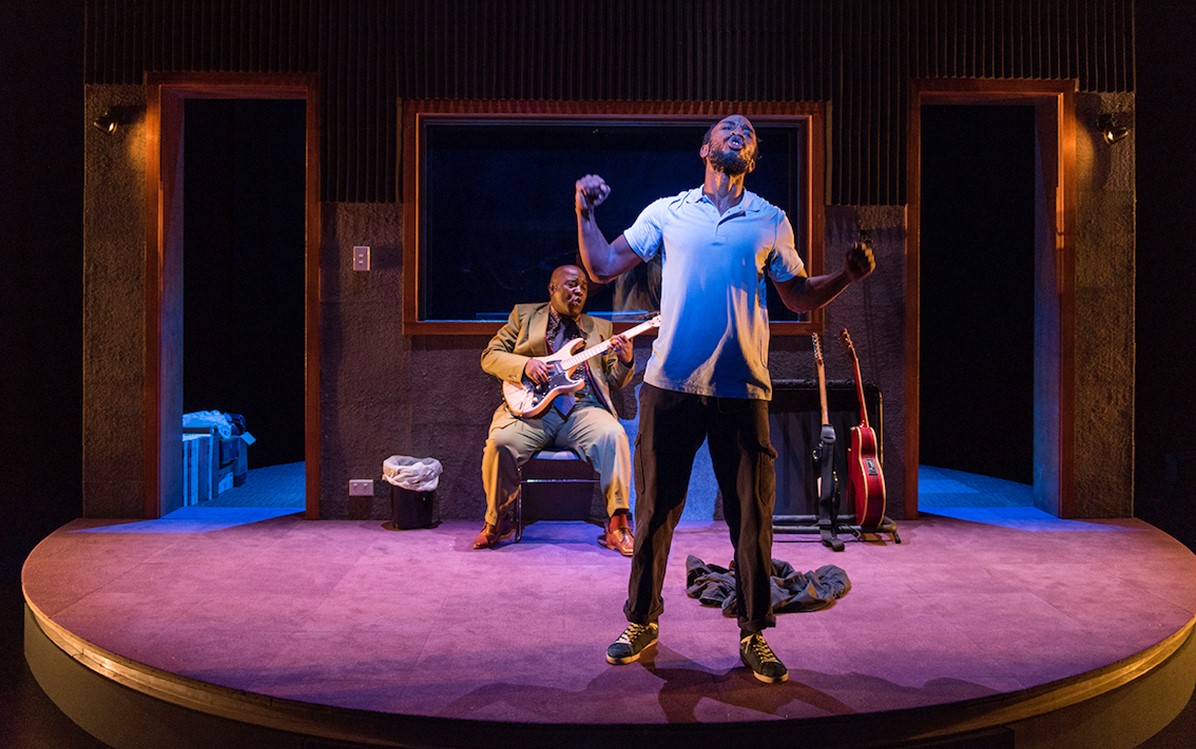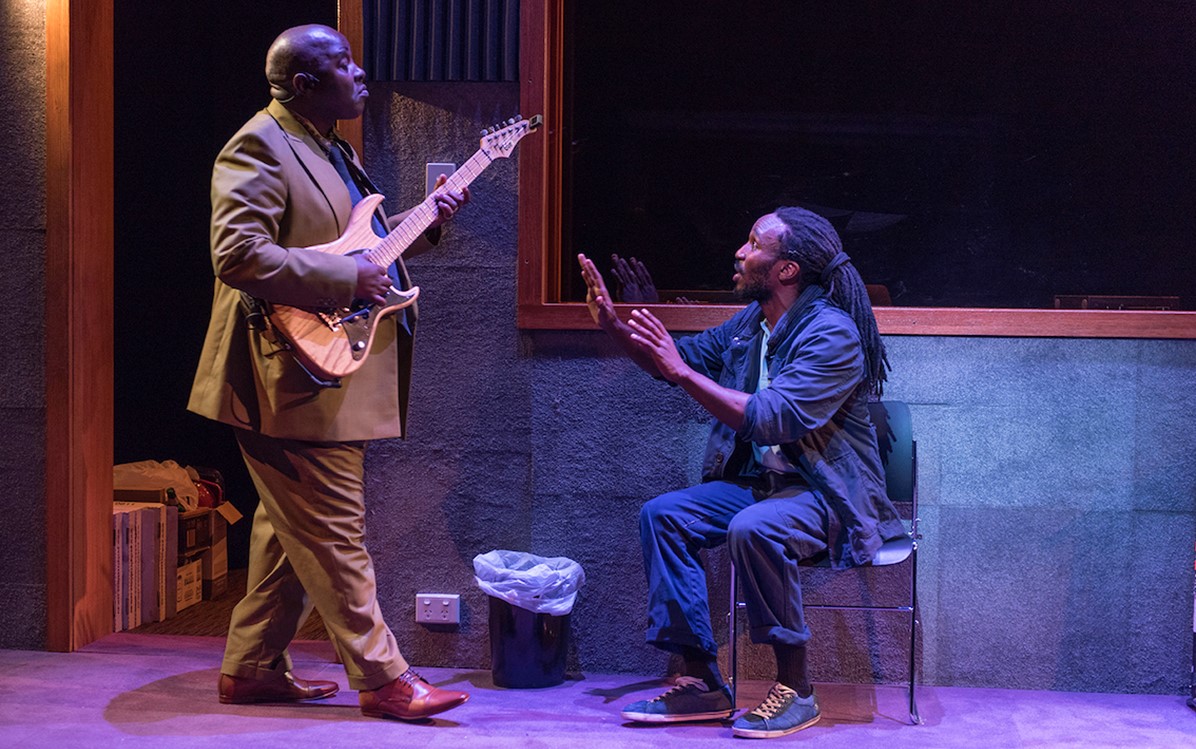
Mararo Wangai on Black Brass
Storytelling is a transformative tool that will revolutionize this world.
It can shift the narrative, challenging one’s thoughts and evoking unwarranted emotions, or it can alternatively place one in an alternative reality. Mararo Wangai epitomizes the change that storytelling creates.
Living on Wiradjuri Land, Mararo’s art encapsulates the diversity that is rich on the Indigenous soil that we walk on. His Kenyan and Australian background has transformed his way of thinking and his production of art at an early age, leading him to catalyze change.
Challenging the status quo is an important element in building an equitable world, and Mararo does just that. His piece, Black Brass, to be performed at Perth Festival, explores the pivoting themes of unity and resilience, presenting the audience with difficult conversations that will keep you thinking.
Every artist has the discretion to place different meaning behind their art, and Mararo does that by striving to stay unsettled and disturbed.
“The audience is not my friend, my job is not to entertain and titillate them, leaving them docile and placated; mine is to provoke, uncover and at times punish,” he said.
“As an artist I am not interested in recreating past art forms but rather pushing my craft to find a new edge that asks new questions, one that challenges performs and audiences alike.”

“Stories are crucial to our identities and story tellers must be held accountable – white supremacy is a narrative that must be challenged, patriarchy is a narrative that must be challenged, ethnocentrism is a narrative, homophobia; these and many more must be confronted and broken down through story-telling.”
The duality of Mararo’s Australian and Kenyan identity increasingly influences his unique way of thinking and challenging the status quo. His previous experience of witnessing the injustices in both countries emanates his need to generate reform.
“As a Kenyan that has lived under a dysfunctional government that values wealth over health, supported by a political system that has perpetuated tribal animosity, nepotism, and continues to fail the majority of it’s citizens, coming from this environment, I am compelled to reach out to the marginalized voices that have no platform.”
“Australia like Kenya has a colonial history and legacy that must be unpacked and unpicked – my identity is crucial to the art that I create, It does not allow me to stay comfortable in the face of injustice or be complicity in the devastation of others.”
Colonisation is a major theme that Mararo constantly refers to. With both Kenya and Australia having a history of colonisation and disenfranchisement, Mararo recognises the vital need to recognize that our identities shape the way that we tell our stories.
“Living in both of thee worlds, I continue to ask myself where I belong in these worlds.”
“The longer I am away from Kenya, the more foreign it becomes, and the longer I stay in Australia, the clearer the injustices become to me.”
“This duality of realities shapes my art by sharpening it against complicity, docility and ignorance; If I am to stay silent on pertinent issues in Australia, I am giving a thumbs up to our complicity; if I am to cut away my ties to Kenya, I am failing my fellow citizens in not engaging with our realities and giving a thumbs up to docility.”
Colonisation is a major theme that Mararo constantly refers to. With both Kenya and Australia having a history of colonisation and disenfranchisement, Mararo recognises the vital need to recognize that our identities shape the way that we tell our stories.
“Living in both of thee worlds, I continue to ask myself where I belong in these worlds.”
“The longer I am away from Kenya, the more foreign it becomes, and the longer I stay in Australia, the clearer the injustices become to me.”
“This duality of realities shapes my art by sharpening it against complicity, docility and ignorance; If I am to stay silent on pertinent issues in Australia, I am giving a thumbs up to our complicity; if I am to cut away my ties to Kenya, I am failing my fellow citizens in not engaging with our realities and giving a thumbs up to docility.”
Black Brass will no doubt challenge your perspective about the infinite and introspective theme of ‘humanity.’ But to Mararo, humanity is more than its literal definition.
Humanity is not just about collectively uniting as one; it is more than that. Humanity is about unravelling the inequalities and distinguishing the disparities between the human race.
“We have been fed the narrative that suggests that certain races belong at the top, some in the middle and inevitably others at the bottom. We continue to be told that certain stories belong at the top, some in the middle and others at the bottom. We are told that certain people must always play the lead, others their smaller counter parts and the rest are to populate the background almost as inanimate objects, blurred and of little significance.”
“All of this is false - humanity is rife with these notions of superiority and inferiority of what is worthy and what is not. We are all riddled with these within ourselves.”
“As a parent to two beautiful sons’ legacy is more and more at the centre of my journey as an artist - I must live this world in a better state for them than I found it when I arrived.”
With Black Brass being a major show at this year’s Perth Festival, we recognize that there is a vital shift needed within the arts sector to include more diverse artists.
Diversity is not just about meeting the benchmark, but it is about removing the benchmark all together, pushing for this value to be the standard across every sector.

“Diversity within the arts sector is not important, it is crucial;
we must, as an industry break down the Eurocentric myths that continue to permeate our industry.”
“It is a great disservice to our audience to see recreations of the same narrative, over and over again.”
“Diversity creates an uncomfortable environment and we need to reckon with that and celebrate the opportunity that it has to offer; a new kind of conversation around the artistic table where every voice is worthy and where all stand to learn, teach and grow together.”
“In the wake of Always Was and Always Will Be, Black Lives Matter, Me Too, Seeking Asylum is not a crime, Trans Lives Matter, and other equally worthy movements, we continue to find that what each of these movements are saying is that it is unsustainable for positions of power to be homogenous,”
“Art is for everyone one of us; we are all worthy and have something worth hearing.”
Article written by Zahra Al Hilaly
Zahra is an arts management trainee at Perth Festival. She is currently studying Law and Journalism at Murdoch University. As a first-generation Australian to migrant and refugee parents, Zahra is passionate about the themes of race, gender and equality, whereby she has worked at a local, national and international level to influence policy and reform for underrepresented constituencies. As a woman of colour, Zahra recognises the vital need for diversity and inclusion across all sectors and has interviewed diverse and prominent artists included in this year’s Perth Festival.
Read more about Black Brass here.
To keep up to date with Mararo’s work, visit Performing Lines.
Photos by Christoper Canato